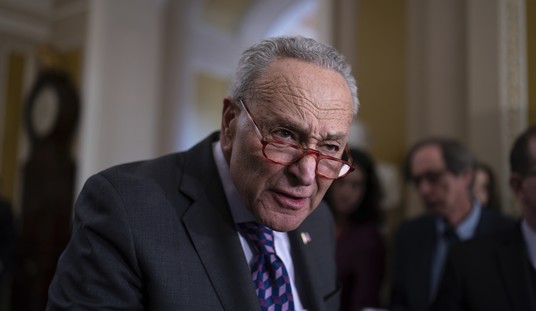Speaker of the House Paul Ryan finally managed to do it: he got rid of that self-serving, “signature” legislation Democrats called the Affordable Care Act and Republicans considered a health insurance money pit. Well, he at least got it pushed through to the Senate (also Republican-controlled and where it faces a better-than-decent chance of passage).
But man, was it contentious. Which is odd. Because Obamacare was a failure, there was little debate about that. Even Democrats were forced to find creative new ways to justify why people were paying more for insurance and people were shying away from signing up as a result.
And it’s worth asking why the passage of AHCA was so contentious, especially in light of the fact that the GOP’s political opponents across the aisle had little problem agreeing to shove Obamacare down the country’s throat several years back.
The short answers — and the best ones — have to do with conservative ideas about principle and the power of the individual.
There are other, more cynical, factors of course. The liberal press is never friendly to the GOP. Ryan was constantly defending his job, his strength as negotiator and his wisdom as a representative of the people of his state. Just look at this Washington Post headline:
So many subtle negatives, with suggestions of false claims.
And the Democrats were legitimately having the vapors throughout the process, as if the Rapture had started and their last measure of goodness on this Earth was tied up in making sure every TV talking head heard them declare the coming apocalypse. Fear of bad press and ruined reputations can make it difficult to get things done. That’s a human reaction.
And then there’s the “House of Cards” nature of politics. DC is the center of the “You scratch my back, I’ll scratch yours” world (except for maybe Hollywood, but that’s a different kind of scratching). And with all the back scratching, some of these politicians tend to obstruct to buy time and angle a personally beneficial deal. It happens on TV shows about the Hill, but it also actually happens on the Hill, too.
And then there are the logistics of the actual programs they’re putting in place, while eliminating the programs of Obamacare. Figuring out the specifics of those things means taking a look at public perception, state economies, infrastructure, and all the rest. And that takes time.
And then there was the desire by pretty much every Republican — leader and voter — to get as far away from Obamacare as they possibly could. Ryan’s original bill — and this one — kept a lot of the more unsavory things contained in Obamacare. As the Wall Street Journal Editorial Board put it, Ryan’s original bill “only partially deregulated insurance markets.” Which, as the op-ed notes, “spooked the moderates.” And that’s really the crux of the infighting: the GOP conservatives and the GOP centrists couldn’t agree (read the WSJ editorial for a run down of the issues they were hung on. High risk pools, pre-existing conditions, all the fun stuff).
The question is: why? The Democrats were foaming at the mouth waiting for the GOP to fail to come together on their one unifying issue. Campaign platforms were almost certainly already being written. Couldn’t the GOP put aside her differences and come together and get it done?
Well, in the end, they did, didn’t they? And it seems that in getting there, the GOP members of the House held individually to the idea that they were there working for the people that elected them. The Freedom Caucus voted no on Ryan’s original bill, but never really grandstanded about it (they could have been much more in the news about it if they’d wanted to be). They weren’t in it for the attention (disclosure: that was surprising.) They just hung back and waited for the next iteration, and were comfortable when it came and pushed it through. They held fast to their principles.
And Ryan and his wing did as well, both in their resilience through the fight to repeal AND replace (rather than splitting the two), and in their desire to work with their own caucus to get it done. The GOP will always face a tougher climb to get negotiated legislation like the healthcare overhaul done because they are not quite “party” men and women. As conservatives, they recognize the power of the individual. And that means less “getting in line” and more “fighting the good fight.” And honestly, it’s a better way to be than just signing onto a boondoggle that bankrupts a working system because Nancy Pelosi says you have to if you want to be part of the team.
As an aside, Ryan didn’t even try to contain his pleasure in the White House Rose Garden as he stood behind President Trump (whom the GOP largely credited with the success of AHCA) and beamed. And he should. It was a contentious process that at times had him battling Democrats, the public, the press and his own party. But as a principled conservative, he got knocked down, but never out.













Join the conversation as a VIP Member